Is your cat panting? This might raise some eyebrows, as unlike their canine counterparts, cats aren't known for this behavior. While dogs pant regularly, a panting cat could hint at underlying problems. Occasionally, it resolves naturally, but sometimes, it could signal a need for a quick vet visit.
Remember, this article is not a substitute for professional veterinary advice, but it can help you understand what's happening with your four-legged friend.
Remember, if your cat starts panting, consider the activities or situations that led to this behavior. Is it the first time you've noticed this? Has your cat been acting strange recently? Any noticeable changes in behavior could indicate a severe condition and should be discussed with your vet.
Let's get started with this in-depth look at these possible triggers for panting in cats and how to differentiate between normal and abnormal breathing patterns.
A Closer Look at Panting Cats
When it comes to panting, dogs typically have a monopoly on this behavior. It's expected, even normal, for them. But what about your cat? Unlike their canine pals, cats don't usually pant. So when they do, it's a cause for attention. Sometimes, the panting may subside on its own, but at other times, it could be a signal that your furry friend needs professional help.
Keep in mind that a panting cat can indicate a medical emergency, and the information in this article cannot replace the care and expertise of your veterinarian.
If your cat is panting, it could be because of one of the following reasons:
- Stress/Anxiety
- Overheating
- Strenuous exercise
- Pain
- Underlying medical condition or disease
The first step when assessing your panting cat is to stay calm. This can comfort your cat and help you figure out what to do next.
![An exhausted maine coon kitten standing on the lawn with mouth open, Why Is My Cat Panting? [And What To Do About It]](https://thecatsite.com/c/wp-content/uploads/2021/05/Why-Is-My-Cat-Panting-533x800.png)
Why Is My Cat Panting?
If you notice your cat panting, think about what activity or situation they were experiencing right before this. Have you ever seen your cat pant before? Has your cat been acting normally until now?
Due to the possibility of panting is a sign of a more serious condition, it is best practice to call your veterinarian with this information to get advice on the best next steps.
If the situation is deemed a non-emergency, read on for a closer look at what may be causing the panting and why.
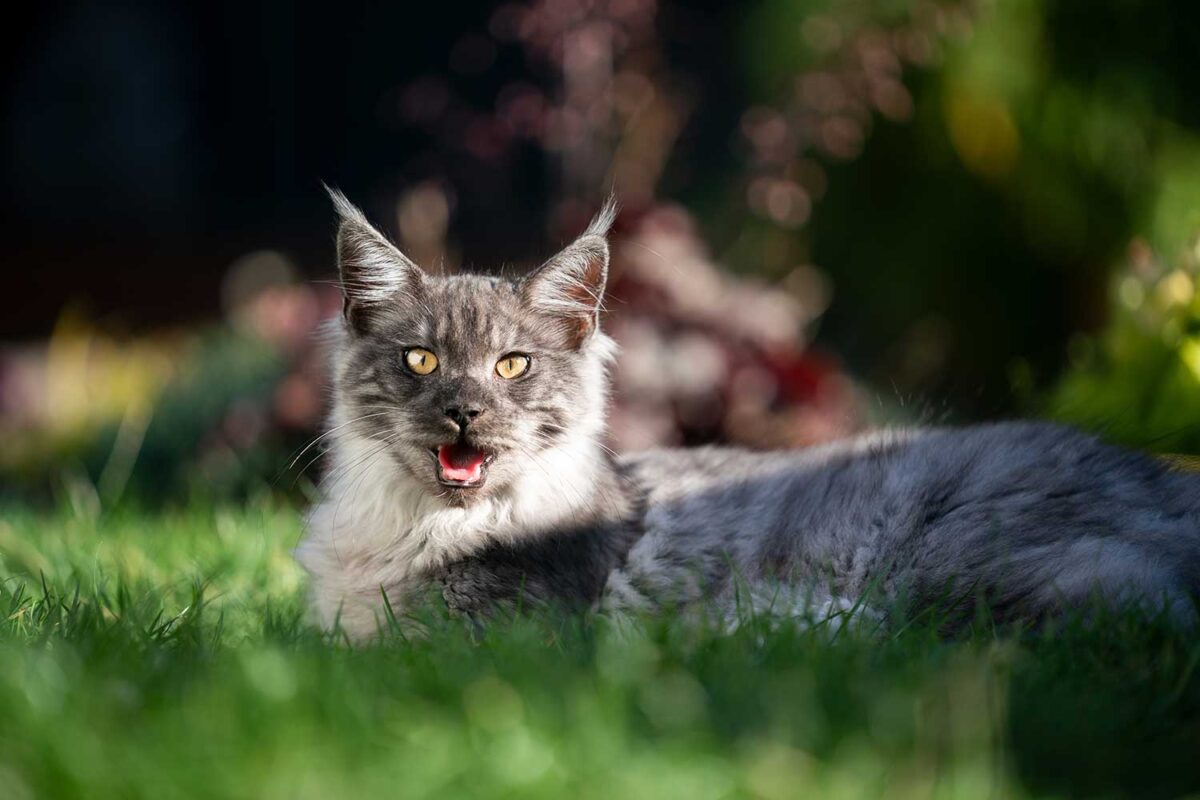
Panting due to Stress/Anxiety
When a cat feels stress, anxiety, or fear, they will express these feelings through body language. Shallow, open-mouth breathing or panting can be a part of this high-emotion body language.
Some high-intensity or stressful events for your cat may include a vet visit, a new animal or human being introduced to the home, or a car ride. If you notice your furry friend starting to pant after being in a stressful environment, give them space in a quiet area to calm down and regulate.
If you're about to take your cat to the vet and you know that they tend to stress out over that, there are ways to help them. This brochure by the American Association of Feline Practitioners contains helpful tips.
How Do You De-stress A Cat?
Our cats are sensitive creatures, and many things can cause them stress. Ideally, we want to prevent or anticipate and manage stressful experiences that our cats may have.
To avoid stress in our feline friends, we need to figure out what causes them stress. The answer may be different for every cat, and while you are figuring this out, you will have to manage a stressed cat at some point. So, what do you do if your cat is stressed?
If your cat is visibly stressed, you want to get them to a comfortable and familiar place. Cats often feel safe when they have a place to hide, so providing a "hidey hole" or a quiet area and away from others is a quick way to de-stress your companion.
Apply that method when your cat is panting due to stress in the vet's clinic. Simply offer your cat a way back into the carrier as soon as the vet is done with the medical checkup.
Read more in our blog post: Stress In Cats - The Ultimate Guide
Is There A Calming Medicine For Cats?
There are many calming products available to you and your cats but the jury is still out on their effectiveness. According to some experts, pheromones can play a large part in managing your cat's stress. These pheromones can be dispensed into their environment either by calming collars or pheromone diffusers.
Amazon offers this "Feliway Classic," a popular product containing the feline facial hormone here.
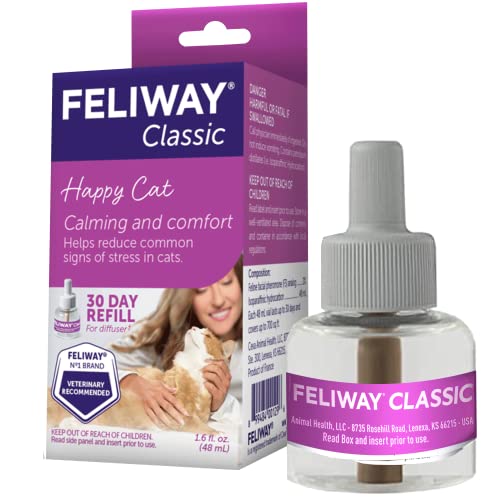
There are calming or anti-anxiety diets and treats made for cats. Most of these diets contain a calming ingredient called "Tryptophan." These diets have been known to soothe anxiety in cats and can relieve some gastrointestinal issues.
There are calming chews available here on Amazon.
Finally, your vet may recommend using anti-anxiety drugs to help Kitty calm down. There are various types of anti-anxiety medications that can be prescribed for cats, and your veterinarian will determine which one is best suited to your cat's needs.
SIGN UP FOR THECATSITE'S EMAIL UPDATES >
Overheating As A Cause for Panting
Like dogs, some cats will pant when they are overheated and trying to cool themselves down. Your cat can perspire through its paws but release only a small amount of heat this way.
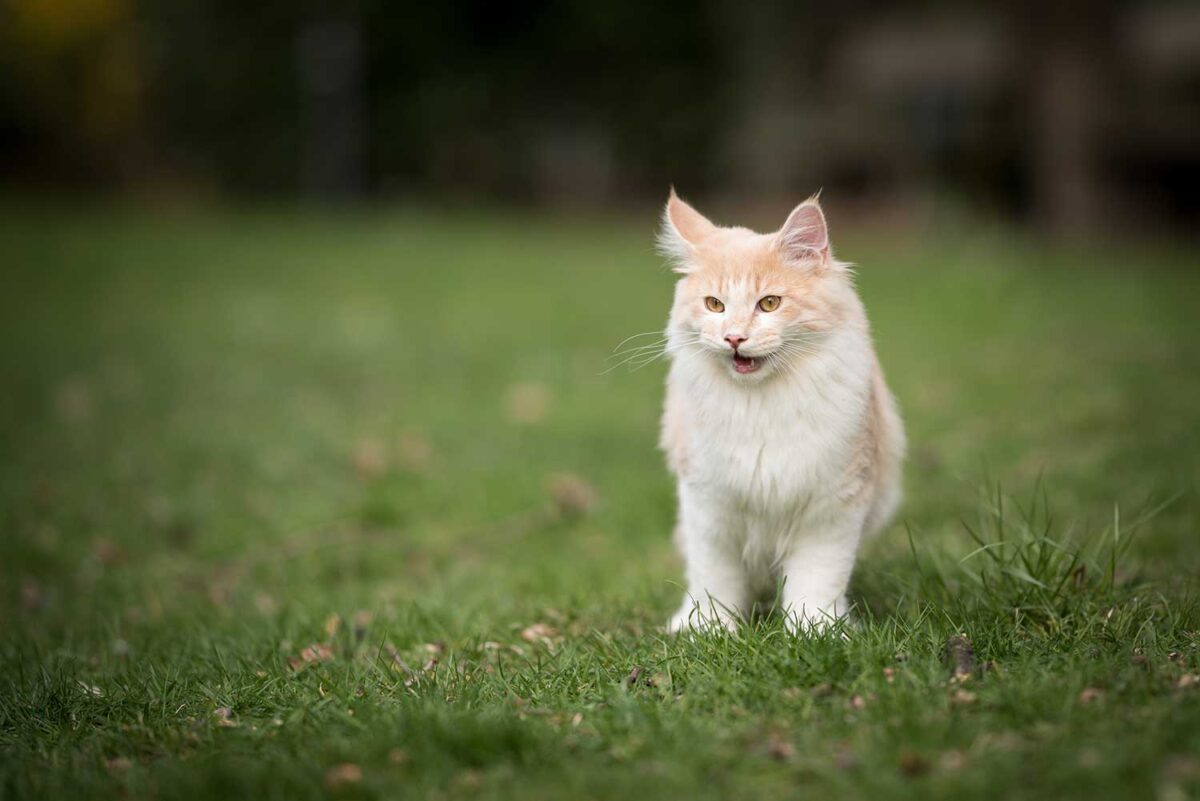
Your cat will try to cool down other ways by drinking water, laying in a shady or cool area, or licking themselves. If they can't lower their body temperature, they may experience a heat stroke. Heatstroke is a life-threatening condition, so make sure to provide Kitty with the right environmental temperature to prevent it.
Read more: What’s The Ideal Temperature For A Cat?
How Do You Cool Down A Cat That's Panting?
The first step to cooling down a cat is removing them from the hot environment. You can move your cat into an air-conditioned space or a room with a fan and a lot of shade. Cats will often stretch their body out on a cold surface to cool down.
If a cat is overheating, it will seek out water to drink to cool itself. You can try putting a couple of ice cubes in their water bowl to provide cool drinking water.
If your cat tolerates it, you can wipe them with a wet cloth. Our furry friends will groom themselves to cool down. Using this wet cloth is speeding up this process. If your cat seems over-stressed by any of your cooling methods, stop what you are doing. Stress can lead to increased or prolonged panting.
Strenuous Exercise and Panting
Exercise or play can get pretty intense for your cat. I'm sure you've seen them get the "zoomies" around the house or find them jumping up to unbelievable heights when they're feeling up to it. It can be normal for a cat to pant after strenuous exercise, but this should only last for a short time.
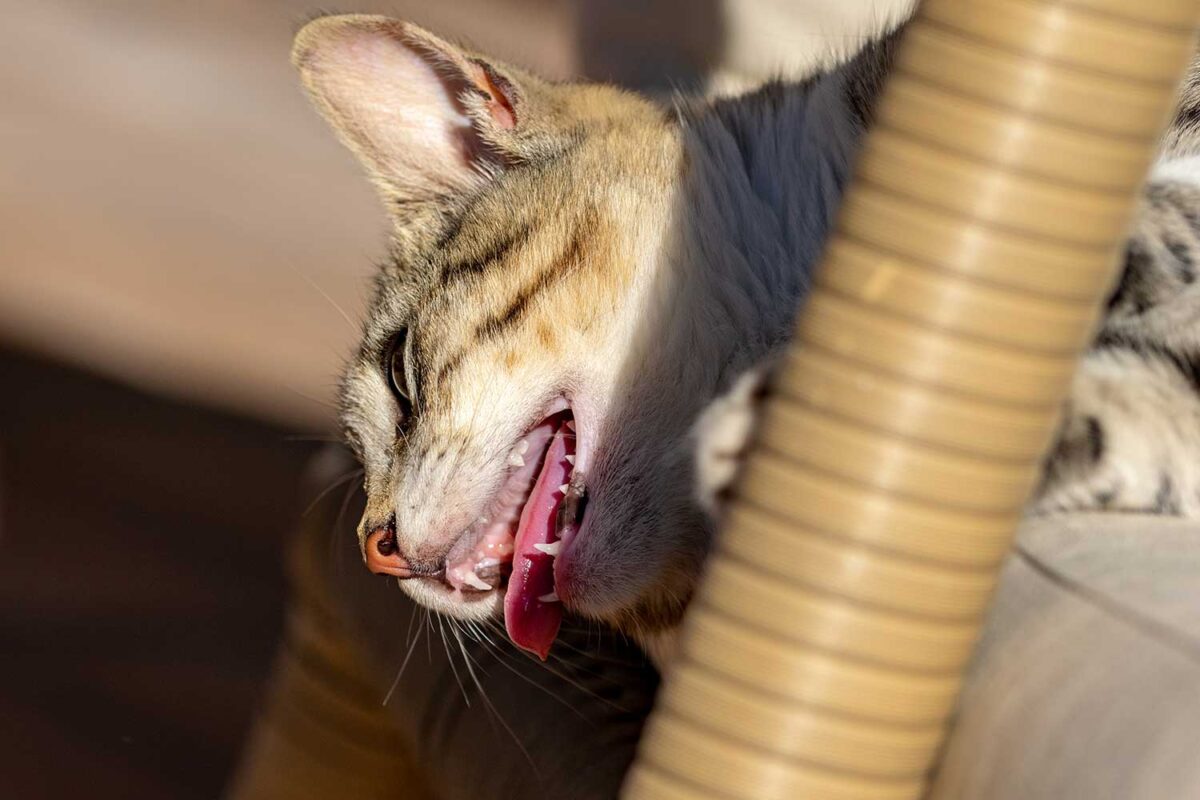
Give your cat time to rest and monitor for worsening symptoms. If panting seems to be getting worse, call your veterinarian.
Pain-induced Panting in Cats
Like stress or anxiety, cats will communicate pain through body language and odd behavior. Some indications that your pet is painful are changes in mood, vocalizing, obsessive licking, hiding, or open-mouth breathing.
If you suspect that your cat hurt themselves or experiencing one or more of these symptoms, the best option is to get them examined by your veterinarian.
Read more on our blog post, "35 Signs That Your Cat May Be In Pain".
Panting As A Symptom Of A Disease
If your cat begins to pant when they are at rest or randomly throughout the day, this can indicate that something more serious is going on. This type of panting can point to a cardiovascular or respiratory issue, and your cat should receive immediate medical attention. Some health conditions that can lead to panting in a cat include:
- Heartworm
- Congestive Heart Failure
- Respiratory Infection
- Asthma
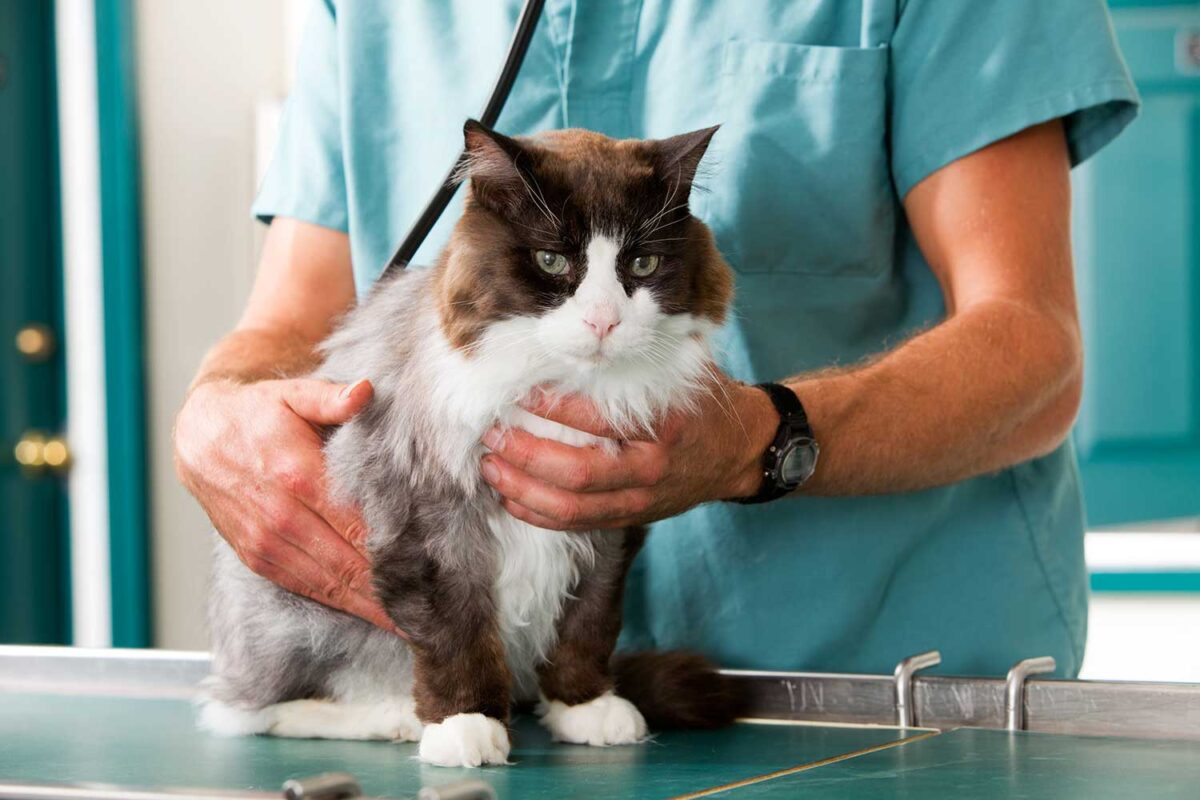
You may notice a lack of appetite and energy, the panting seeming raspy or rapid, discoloration of the gums, or your cat hiding more often. These signs and symptoms mean that your cat should be seen immediately by the veterinarian.
If your cat seems to struggle to breathe, you're looking at labored breathing, also known as dyspnea. This type of breathing pattern is more serious than panting or hyperventilating.
A 2009 Veterinary journal looked into labored breathing and what caused it in 90 cats that showed up at the vet's office. About a third of the cases were caused by heart disease. An additional third of the cases were the result of respiratory conditions. Finally, 20% of the cats who arrived with signs of labored breathing were diagnosed with some form of cancer.
The bottom line is, if you notice labored breathing, call your veterinarian immediately for further assessment.
Read more on our article about "Heart Disease In Cats."
What Is A Normal Breathing Pattern For A Cat?
When a cat is breathing normally, its mouth should be closed. Counting 20-30 breaths per minute is a normal rate for your cat at rest. Normal breathing for a cat should never be labored or have a harsh sound.
This video shows you what normal breathing will look like for a healthy cat.
A good time to check for a cat's breathing rate is when they sleep. In fact, measuring a cat's Sleeping Respiratory Rate, or SSR can provide owners with an indication of early signs of congestive heart failure.
To measure your cat's respiratory rate, sit by them when they sleep and count the number of times that their chest goes up and down during a period of 15 seconds. Multiply the number by four and you get their SSR figure. If that number is over 40, let your veterinarian know and get Kitty in for a checkup.
In Summary
A panting cat should raise some concern. If your cat begins to pant, evaluate where they have been and what they have been doing to determine the cause of the panting. If there are no obvious stressors or the influence of heat, you should call your veterinarian immediately to get advice on the next best steps.
Sometimes, panting can indicate a larger issue or illness, especially when accompanied by labored breathing. If this is the case, talk to your vet and see whether you need to get your cat in immediately or schedule a health check-up.
We hope you found this article helpful in breaking down the panting cat and maybe grabbed some ideas on reducing stress for your furry friend.
SIGN UP FOR THECATSITE'S EMAIL UPDATES >
Looking to learn more about your cat? Read our article: Why Does My Cat's Mouth Hang Open?
Note: We may get commissions for purchases made through links on this page.


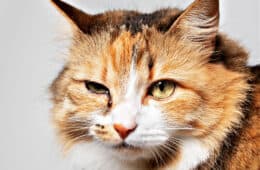
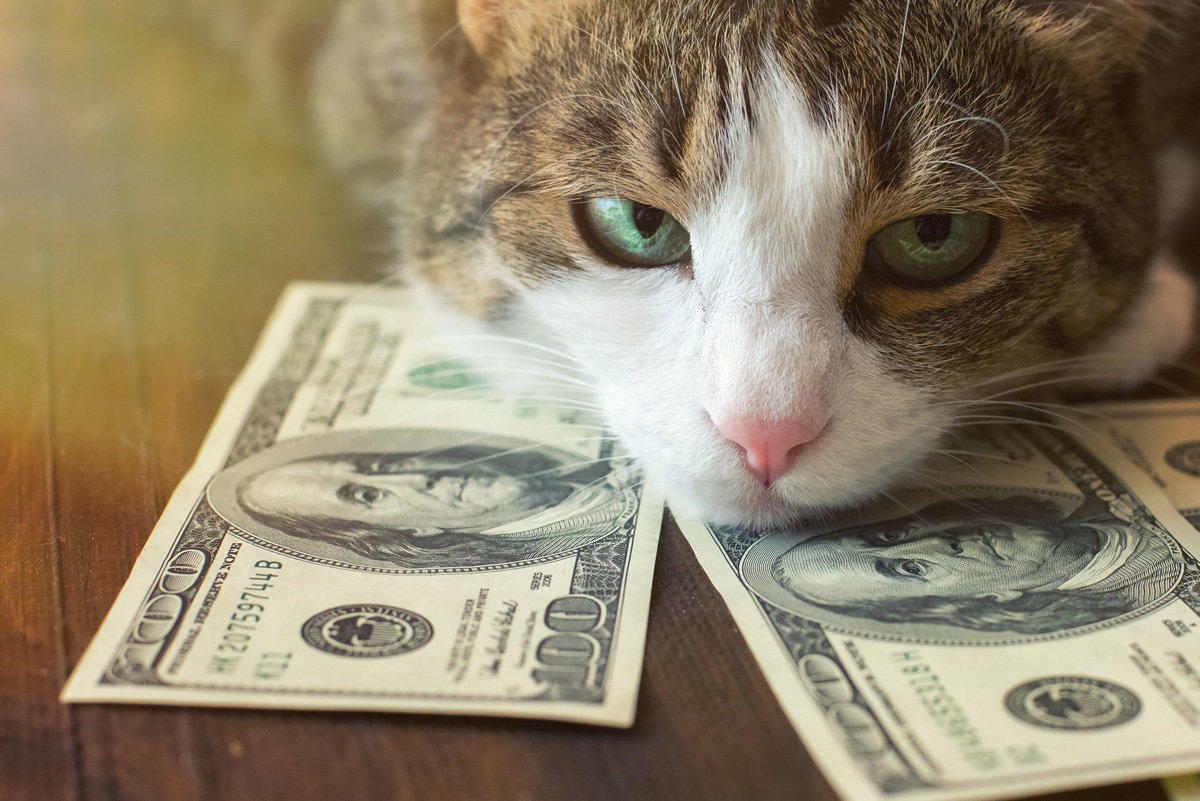
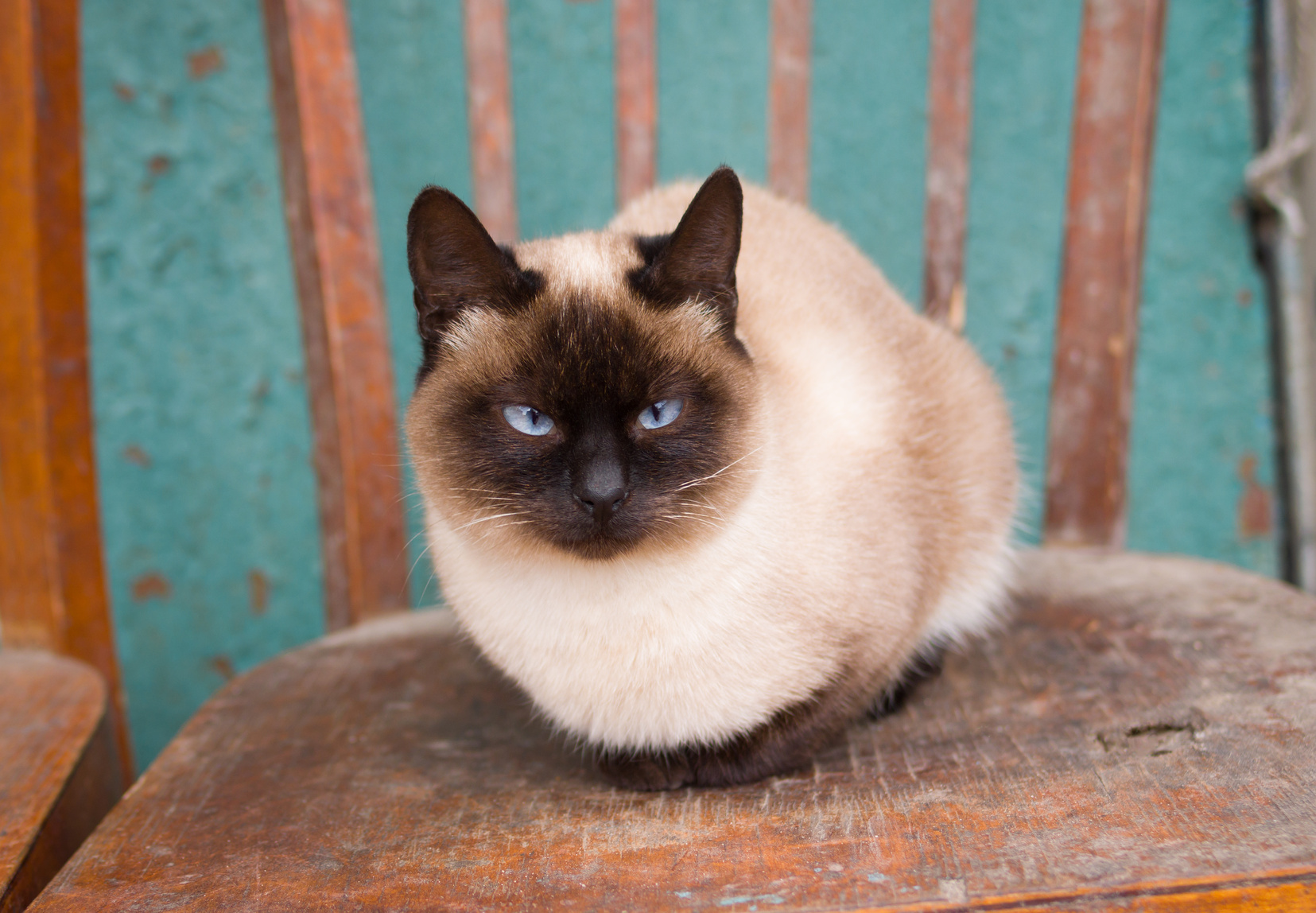
4 comments on “Why Is My Cat Panting? [And What To Do About It]”